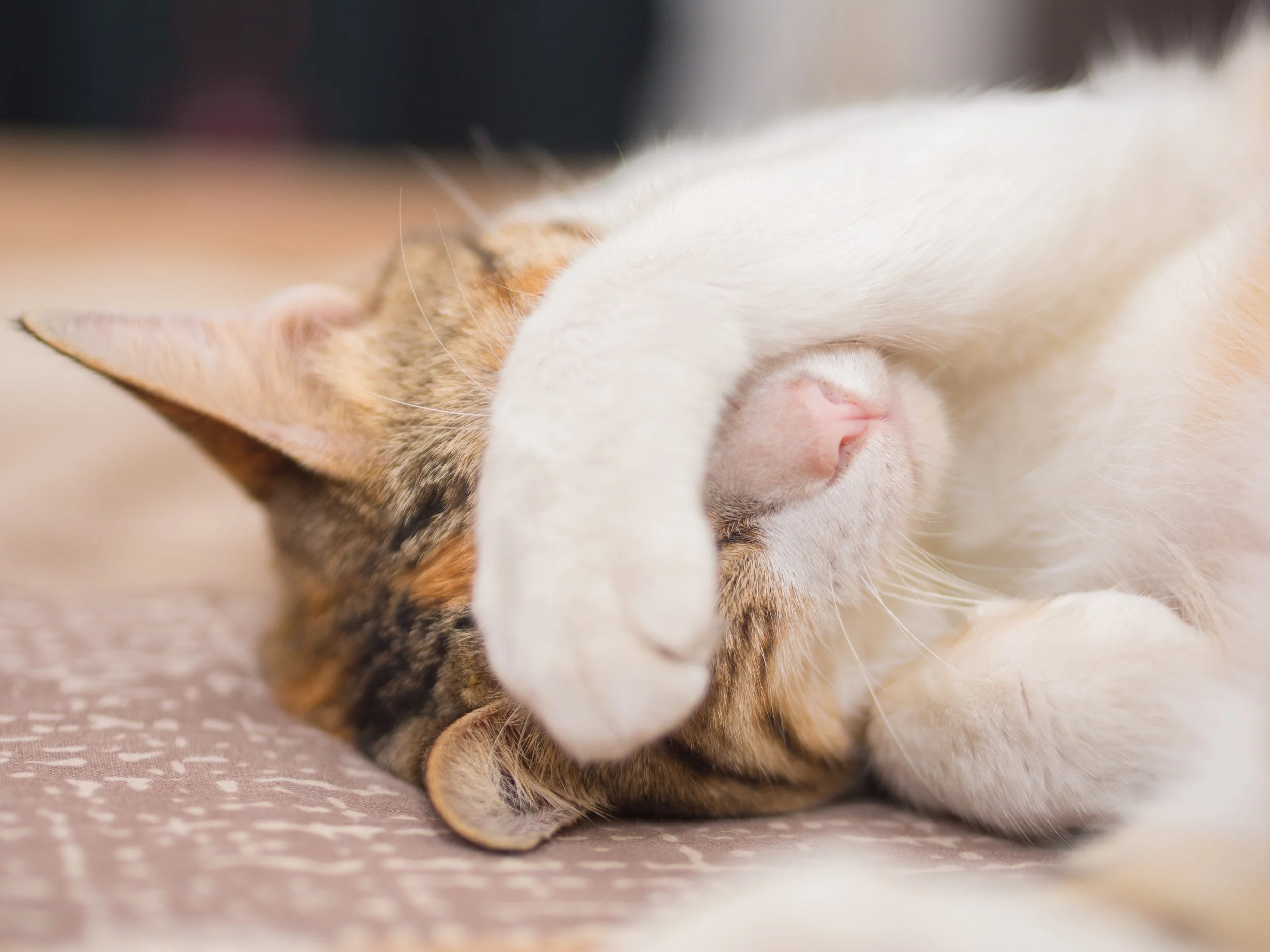How to Deal with Cat Spray/Urine Smells
One of the less pleasant aspects of living with cats is dealing with the occasional cat spray or urine smells. While it’s not uncommon, it shouldn’t be a regular occurrence and can sometimes be indicative of a more serious issue. Understanding the reasons behind this behaviour and using some of the more effective methods to eliminate the odour can help maintain a harmonious and fresh-smelling home.
Note: If you have a cat that is regularly spraying/urinating outside the box, make sure you contact your vet as soon as possible.
Understanding Cat Spraying vs. Urination
Before addressing the odour, it’s important to differentiate between spraying and urination. Spraying is a territorial behaviour, often exhibited by unneutered males, where the cat releases a small amount of urine on vertical surfaces. Regular urination, on the other hand, involves a larger amount of urine and is usually done in the litter box or, unfortunately, on floors or furniture if there are issues.
What to Do When Your Cat Sprays/Urinates Outside the Box
When dealing with cat spray or urine, prompt and thorough cleanup is essential to prevent lingering odours and discourage repeat behaviour. Cats are strange little creatures and once they mark or pee in a place, they are very likely to do it again if they can detect even a hint of their own smell. Using the right cleaning products makes a significant difference.
First off, use a black light to detect the areas where your cat has had problems. While the odour is often enough to know a cat has marked an area, it’s also a good plan to see it so you know where to clean. Cat urine contains phosphorous which can be picked up by UV in a darkened room.
Enzymatic cleaners are the most effective at breaking down the proteins in cat urine that cause the persistent smell. These cleaners are specifically designed to eliminate both the odour and the source, ensuring a thorough cleaning. These can go a long way in preventing a cat from being tempted to hit the same spot over and over again.
If the smell is quite strong, baking soda might just be what the doctor ordered. Baking soda is almost magical in its ability to tackle strong odours. After blotting the stain with paper towels, cover it in baking soda for a while then vacuum it up with a shop vac or wet/dry (fine powders can harm regular vacuums).
Addressing the Underlying Issues
If your cat’s spraying or urination is due to a medical issue, such as a urinary tract infection (UTI), it’s imperative to consult your veterinarian. Of course, you won’t know if they have a UTI until you go to the vet, so make that your very first stop when dealing with these problems.
For behavioural issues, consider environmental enrichment, stress reduction techniques, and ensuring the litter box is clean and accessible. Some younger cats might struggle to make it to the litter box when they are excited or having fun. This can be tackled by having more than one litter box (an average of 1.5, rounded up, per cat living in the house) available and placing the cat in the box after long periods of play or a meal.
If the problem persists despite your best efforts, don’t hesitate to seek professional help. Even if it is not caused by a UTI, a veterinarian or a certified animal behaviourist can provide further insights and develop a customized plan to address the issue.
Preventive Measures
Preventing future incidents involves making your home environment as stress-free and comfortable for your cat as possible. Regularly clean their litter boxes, provide ample vertical and horizontal spaces for them to explore, and if you are still struggling to get your cats to destress, you might try using pheromone diffusers to create a calming atmosphere.
Final Thoughts
Dealing with cat spray or urine smell requires a combination of understanding, effective cleaning methods, and addressing underlying causes. By taking a proactive and informed approach, you can eliminate odours and create a more harmonious living environment for both you and your kitty!
Remember: cats who are still intact have a much higher chance of spraying or urinating outside the box. We always encourage cat owners to spay or neuter their cats and this is just one of the many good reasons for that.

